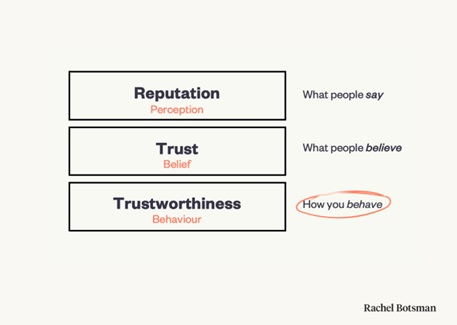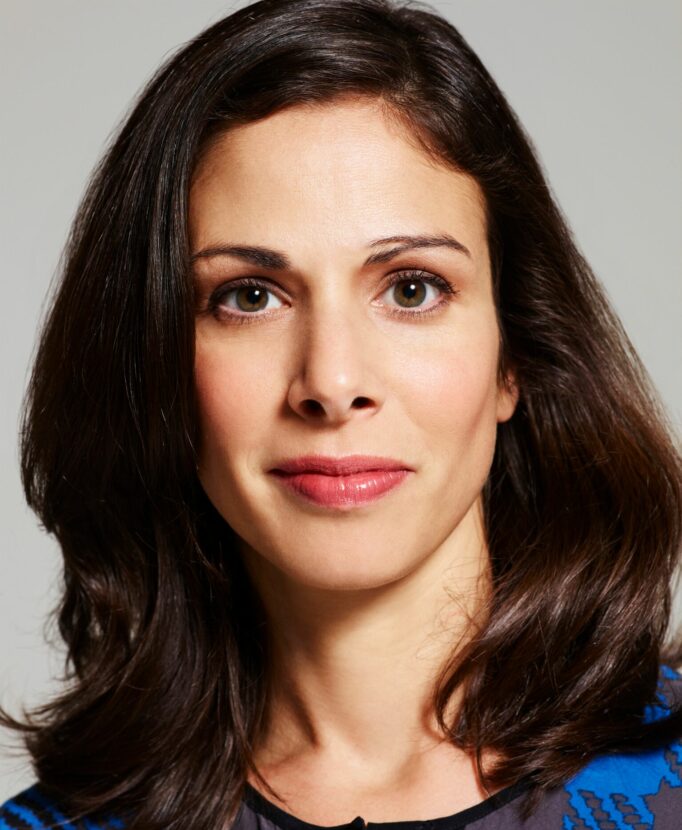Celeb Shot
How to Rethink “Building Trust”
Global trust expert Rachel Botsman shares insights into the intricacies of trust in leadership, challenging the traditional notion of “building trust,” and instead advocating for earning it continuously and how leaders can better understand the trust dynamics in their teams and cultures.

“How do I build more trust?” is the number one question leaders ask me. I get it because the language of “building trust” is everywhere. Indeed, I’ve recently returned from the World Economic Forum in Davos, Switzerland, where the central theme was “Rebuilding Trust.”
Trust is intrinsic to all relationships, at work or home. But we need to rethink trust as something you must continuously earn versus build. It’s more than a language shift; it’s a reframing of how we think about power and choices in relationships with peers, partners, colleagues, and clients.
“Building trust” is tied to a ‘power over’ leadership thinking. If I do or want something, someone in service or who reports to me will follow. It’s tied to a traditional, top-down, pyramid concept of power and trust that is losing relevance and appeal. It can lead to a mindset or cultural dynamic of asserting control, dominance, or authority over someone — never a great way to earn trust.
Earning trust is a ‘power with’ way of framing leadership, where I’m in service of others, not served by others. It’s a more collaborative, inviting, and inclusive approach to leadership that embraces trust in ways that unlock autonomy, shared decision-making, and the distribution of responsibility. Leaders who earn deep trust are often masters of letting go, conceding control.
Giving and Receiving Trust
Understanding your power and trust dynamics is an essential skill for any leader. To do so, it helps to start by looking at the two roles in any trust relationship:
- Trust Giver: The individual deciding whether to trust someone or not.
- Trust Receiver: The individual who wants or needs another person’s trust.

In our personal and work lives, we frequently switch roles. We’re a trust giver when we’re
- An employee deciding whether to trust a manager or leader
- A voter deciding to elect
- A customer choosing which brand to trust
Who has the power? The ‘Trust Giver’! The receiver must always earn trust.
One of the most fascinating things about trust is that you can think you’re incredibly trustworthy, but the giver has the power to withhold trust because they think, “No, I don’t trust you.” I know it’s frustrating.
When a leader asks, “How do I build more trust?” there is an implicit assumption — even if it’s unconscious — that they have the power. However, research shows that power can help and hurt trust development. It all depends on how you think about how trust flows and is reciprocated.
Reputation, Trust, and Trustworthiness
Another way I help leaders reframe their understanding of trust is to clarify its relationship to two other sibling concepts — reputation and trustworthiness because they’re often muddled or misconstrued.
- Reputation is based on perception and narrative – what others say about you.
- Trust is a belief. I define trust as “a confident relationship with the unknown.’ It’s a belief in someone or something. And like all beliefs, it’s highly subjective and contextual – and very hard to control.
- Trustworthiness is a behavior we can shape through our decisions, values, and choices.

Being worthy of someone’s trust depends on:
- How we treat people daily, especially when things are not going well.
- How we communicate and set expectations, especially when under stress or pressure.
- And what we decide to do — but equally important, what NOT to do.
Trust isn’t a fixed asset we “build”. We decide to trust people and companies based on a living and breathing set of choices, actions and, equally important, inactions. And it doesn’t matter if you’re a teacher, parent, political leader or CEO; we should want to earn people’s trust to help, empower, and protect them.
Events aren’t easy, but working with WSB is. WSB works with thousands of respected influencers, thought leaders, and speakers each year and our experienced sales team is committed to the success of your event. For more leadership speaker ideas, please contact us.
